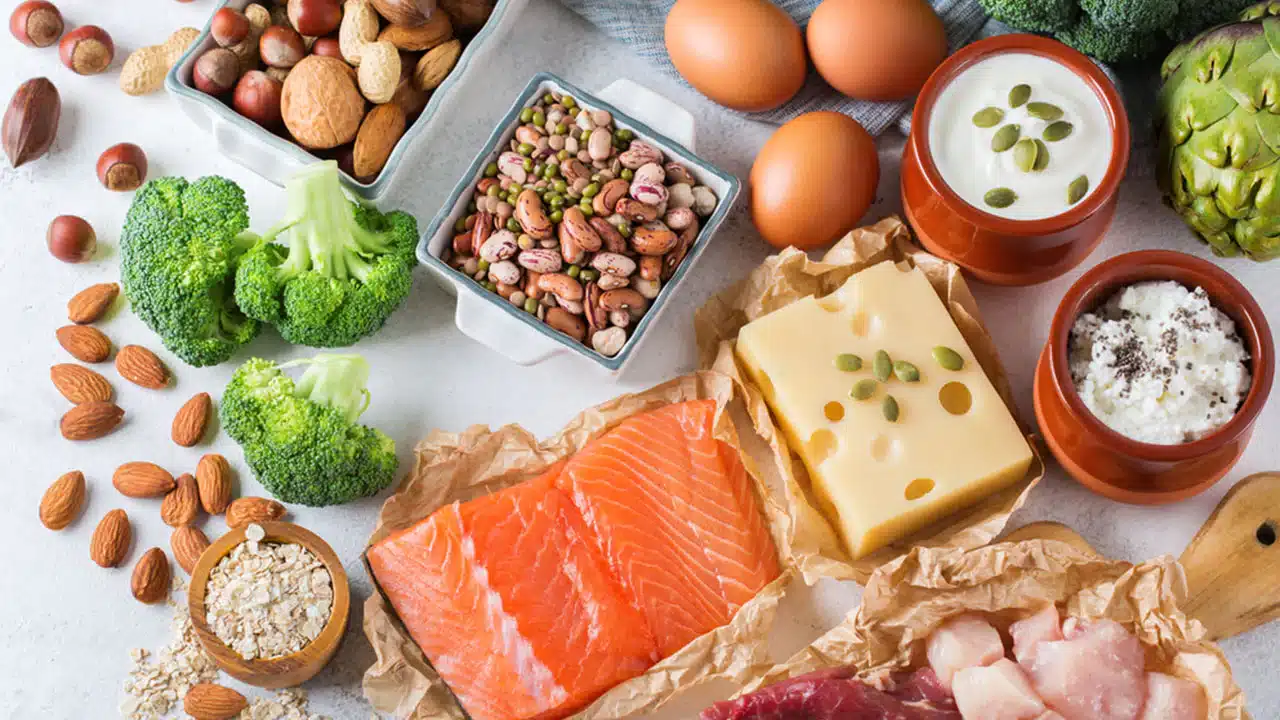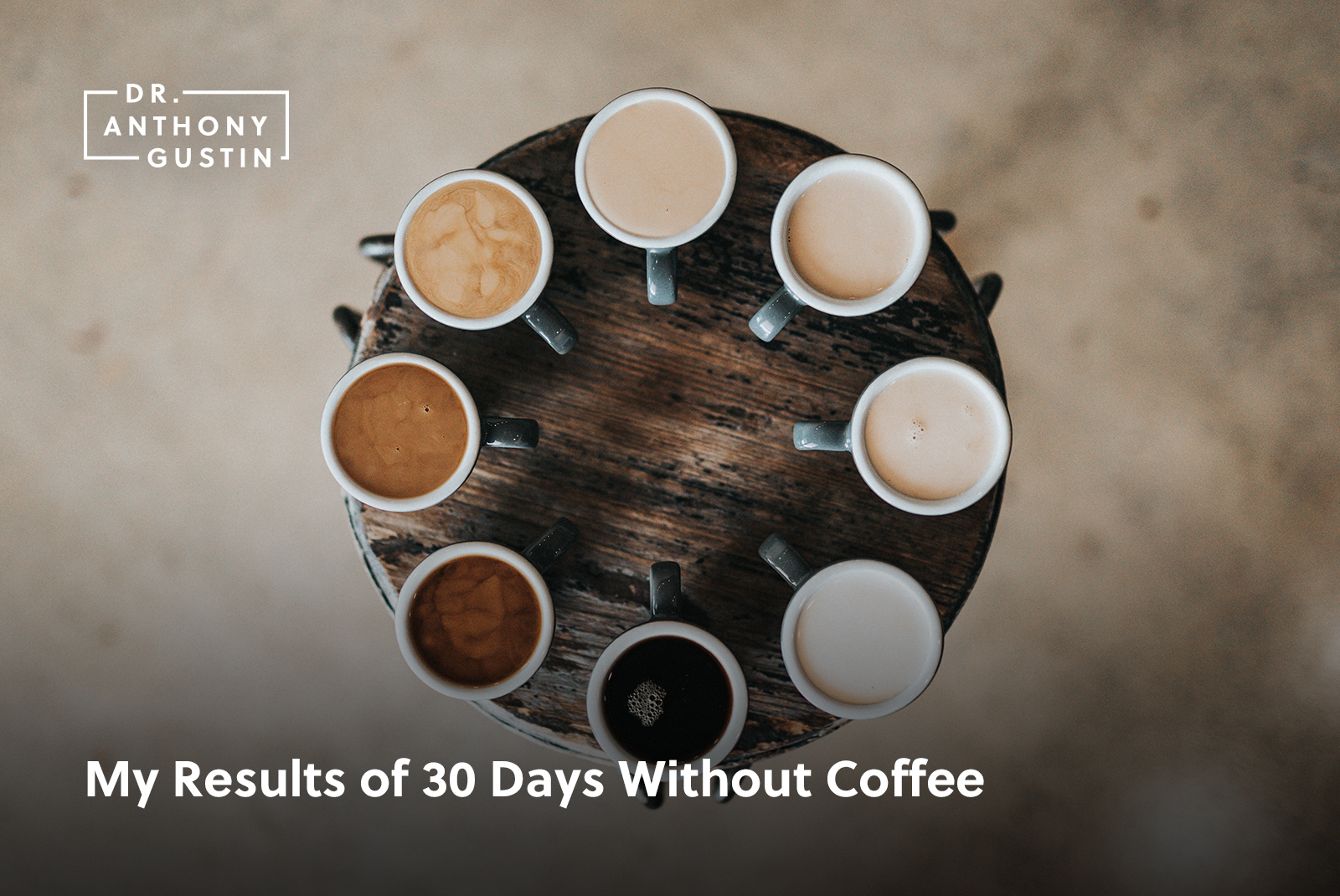Low Carb vs Keto: Why Ketosis is Different From A Low Carb Diet

Are you making a critical mistake when it comes to ketosis? I’ve been extremely guilty of it in the past.
One of the biggest mistakes for people trying to improve their health is the misconception that a low carbohydrate diet equals a ketogenic diet. Unfortunately, this isn’t the case and could be killing your efforts to get all of the health benefits you are looking for.
There are some critical differences in what people think a “low-carb high-fat” (LCHF) diet is and what a ketogenic diet is.
High carb doesn’t mean diabetic. Just like low carb doesn’t mean ketogenic.
If you’re not super down with what ketosis is, it is simply a metabolic state of using fats for energy. This provides a lot of benefits that we can get into later, but long story short, there are numerous benefits that you’re going to be missing out on if you are simply “low-carb” and not definitively in ketosis.
Your low carb diet can actually be pretty brutal if it is not a ketogenic diet. As evidence, this is a maddening conversation that bubbles up more and more as I won’t shut up about ketogenic diets:
Person: “Yeah, I tried ketosis and it sucked, I felt awful. Doesn’t work for me.”
Me: “Hmm, that’s weird, did you check your ketone levels?”
Person: “No. But, I was low carb. Ketosis isn’t for me. It sucks.”
Me: “Well… low carb doesn’t mean you’re burning fats and utilizing ketones, so your body was still probably trying to use carbs as fuel, but you didn’t have enough around eating low carb, which is why it sucked.”
Person: “I’m not tracking. Ketosis sucks. And so do you.”
This person was low-carb, not keto. There is a huge difference. By why? Time for some definitions:
Low-carb: Eating an arbitrarily “low” number of carbohydrates, or just avoiding carbohydrates altogether.
Ketosis: a metabolic state of using the breakdown of fatty acids into ketones which your body will primarily use for energy.
So eating low carb is random food choices you make, whereas ketosis is a state of metabolism.

So why is just low carb bad? If you’re just low carb and not keto, you can experience some of these very fun side effects:
– Low energy and fatigue
– Irritability and mood swings
– Hormonal disruptions
– Hunger pangs
– Weight gain
– Physical performance losses
– Messed up lab panel
– and more!
When you are not in a state of ketosis, your body is using the breakdown of carbohydrate (or proteins) to create glucose and use it as a primary energy source.
However, the shift from burning carbs for energy to burning fats for energy doesn’t automatically happen when going “low-carb”. This means your body is asking for fuel that you are not giving it. Not good.
If you’re still running on carbs for fuel, but not eating any carbs and giving your body any fuel, you will be having a bad day.
But why isn’t it good enough to just eat low carbs? Good thing you asked. Shifting from burning carbs for energy to burning fat for energy is a different process for everyone and is not as simple as just limiting carbohydrates.
Here are three main reasons why people eating a general “low carb” diet can feel terrible, not get into ketosis and write it off as something that doesn’t work for them:
1: The level of carbs is still too high
Everyone responds to different levels of carbs, fat, and protein differently. It’s not enough to just eat what you think is a low amount of carbohydrates. Your metabolic history, daily activities, or any other factor may mean you can only tolerate 25 grams of carbs per day before getting kicked out of ketosis whereas someone else can tolerate up to 100 grams of carbs per day.
The only way you can tell if you are eating too much or too little carbs is to test your ketone levels. If you don’t know, I wrote an article, appropriately titled How To Test Your Ketone Levels.
If you are limiting under 20 grams of carbohydrates, testing your ketone levels, and still aren’t in ketosis, move on to the next problem.
2: The amount of calories consumed is too low
If you’re not eating enough food, your body is going to be going into a starvation mode and not going to be super thrifty at burning any type of energy. This happens many times because people think that they can just remove carbs and not replace that food source with anything. That’s a huge mistake.
You’re going to be super low energy, have hormonal problems, and potentially gain fat on a very low-calorie diet versus one that is closer to your metabolic needs.
Make sure that you are getting an adequate amount of calories for your body size, and in the form of fat. Use any arbitrary calculator online to determine a rough amount, but for most people this will be between 2000-2800 calories.
If you don’t know how much you are getting in a day, then for a few days get a baseline by using an application like MyFitnessPal to track everything and see where you stand.
Check your ketone levels and symptoms, see where you’re at, and if you’re still struggling after increasing calories then move to the next item.
3: The amount of protein is too high or too low
Protein can turn into carbohydrates via a metabolic process called gluconeogenesis (making new carbs) and will do in people at varying degrees. Protein turning into carbohydrates means you’re not in ketosis. However, this is generally an overblown statement that only happens at the extreme cases when you are drinking a lot of liquid protein shakes.
This is a huge mistake I was making. Even though I was eating about 20g of carbs and assumed that I was in ketosis, I wasn’t. So I tested. Hmm… still not in keto, eating enough food, and I feel like shit, must not be for me. But no! I wouldn’t accept that.
I ended up pulling protein intake down from about 180g per day to about 120g per day and removing all of the liquid proteinI was consuming. Anything over 120g with liquid proteins and I’m out of ketosis. Once I pulled the intake down and found this sweet spot, it was like the lights came on. Energy skyrocketed.
I thought that eating this amount of protein would leave me a withered and emaciated little boy, but this is a belief I held for years of being beating over the head with jugs of protein powder and bro-science. It turns out, you (or, at least I) don’t need as much protein as once thought. However, eating very FEW grams of protein is not smart either.
Since eating about the amount of protein, working out a little less, and being super strict on a ketogenic diet I’ve actually gained lean tissue mass. This also happened after my recent four day fast, which busted another belief of mine that you would die and lose muscle if you didn’t eat protein every 12.4 minutes.
If none of these modifications work for you, check out my article on the biggest ketosis mistakes people are making. If you’re still having problems, you should check with your doctor about other issues that could be going on.
A ketogenic diet is not a low energy diet. It is a normal human metabolic state that we used for many thousands of years. You are born in a state of ketosis. You should not want to die when you’re keto.
A ketogenic diet definitely is a low-carb, high-fat diet. But a low-carb, high-fat diet is not always a ketogenic diet.
The most important takeaway here: YOU MUST TEST AND TRACK LEVELS TO MAKE SURE YOU ARE ACTUALLY IN KETOSIS.
Ketosis isn’t an idea. This isn’t like “paleo” where just because you eat things that you think cavemen eat and then you’re all good. Ketosis is literally a measurable metabolic state.
You can’t just assume you’re in ketosis. It is very specific for every person. Make sure you’re tracking and testing up front, then peel back when you have a reduction in ketone levels.
Any other questions about low-carb? Just let me know and I’ll update this as they come in!




